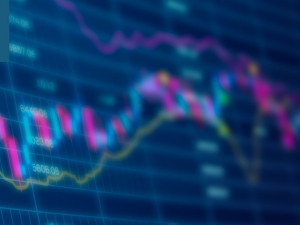
BoE being called upon to wait
Morning mid-market rates – The majors
11th August: Highlights
- Inflation, less of a concern than slowing the recovery
- Trump’s Republicans embrace Bipartisanship
- Data adds to euro weakness
Industry to Bank. Defer tightening until recovery complete
For that reason, bosses’ union, The Confederation of British Industry is lobbying the Bank of England to hold off on any tightening of monetary policy until the burden on industry is known.
It seems that in common with other nations, UK businesses believe that inflation is the lesser of two evils when compared to the issue of the country’s recovery.
The Bank of England has elevated itself to possibly the most hawkish of the G4 Central Banks following its most recent advance guidance on monetary policy.
The turnaround in the UK’s fortunes, driven totally by the success of its vaccination programme, means that if the Bank of England isn’t the first to begin tightening, it is certain to be second.
The British Government was driving headlong into a potential disaster before the vaccination programme began now 75% of all adults in England have received both doses.
While the pound is likely to continue a modest downwards trajectory versus the dollar, against the euro it is looking like it will test the 1.2000 resistance that has been a target since the recovery from the low at 1.0515 in March last year began.
Data releases have been relatively thin on the ground since last week’s Bank of England meeting, and this has allowed traders to fully digest the implications of the outcome.
However, tomorrow will see the preliminary release of GDP for Q2, which is expected to show that the economy grew by close to 5% between April and June.
Next week will see the release of employment and inflation data for the UK both of which are likely to be supportive of the pound.
Yesterday, it fell to a low of 1.3827 versus the dollar, closing at 1.3840.
Considering your next transfer? Log in to compare live quotes today.
Dollar strength from policy change and global concerns
If the dollar index breaks the March high of 93.35, then the long-term bottom at 89.53 will be confirmed and a move towards 94.75 can be expected.
It seems that one of those rare moments when technical and fundamental analysis both point in the same direction is being established.
Recent Central Bank comments along with data releases point strongly to the dollar re-establishing itself.
There is a distinct divergence forming between hawkish and dovish Central banks, although that label should probably be hawkish and less hawkish since the global economy is clearly going to enter a period of tighter monetary conditions following historically lower rates originally necessitated by the financial crisis.
St. Louis Federal Reserve President Raphael Bostic became the latest to nail his colours to the hawkish mast this week when he called for the tapering of asset purchases to begin sooner given the strength of recent data releases, including but not limited to the past two employment reports.
Bostic believes that the economy has already made substantial strides towards its goal and if the data remains in a similar vein for the next couple of months, the Central Bank should consider what its position will be going forward.
Bostic is the latest in a long line of FOMC members who believe that the time to taper is just around the corner.
The opposite side of that argument is that there are still some supply issues that need to be ironed out and the Delta Variant is still an issue in certain areas of the country, but those voicing concerns are few and far between.
Former President Donald Trump’s strident message to Senate Republicans regarding the infrastructure bill that is passing through the Legislature appears to have no effect as the healing of the country’s political system continues. Senate Minority Leader Mitch McConnell remains steadfast in his support of the Bill. Yesterday, the dollar index continued to recover lost ground.
It reached a high of 93.14, closing at 93.05.
Inflation and rising infections cancel each other out
A classic example of this is the most recent moves by the Central Bank to both clarify and solidify its position on inflation.
The use of a committee approach is supposed to foster closer ties and a more democratic method of making decisions. That is all well and good as long as those who do not agree with the decisions reached are prepared to abide by them.
This is clearly not the case for the Bundesbank and its President, Jens Weidmann.
While Christine Lagarde won the vote to allow the ECB to permit inflation to rise above its 2% target in certain circumstances, there remains a large degree of agitation taking place that voices concerns that once the genie is out of the bottle, it will be impossible to return it.
Of course, in practical terms, the Bundesbank’s concern is that a majority of the ECB Governing Council Members won’t have the will or desire to see it return to below 2%.
This will prove to be the worst of all cases for Weidmann. Not only has the German plan to inject a degree of financial discipline into more profligate eurozone members, but Germany now finds itself a party of a less rigidly controlled group.
It is difficult to argue with a more dovish stance from the ECB, and in the long run it is fairly certain that it will contribute to the Region’s eventual recovery from the Pandemic and the economic havoc it brought.
However, any talk of a permanent relaxation of strict financial regulation when coupled with the possible political upheaval that could take place next year could see the end of this stage of the experiment and its first backwards step.
The euro’s retreat versus the dollar is reaching a critical point. A break of support at 1.1703 could see its fall accelerate.
Yesterday it fell to a low of 1.1709, closing at 1.1721.

About Alan Hill
Alan has been involved in the FX market for more than 25 years and brings a wealth of experience to his content. His knowledge has been gained while trading through some of the most volatile periods of recent history. His commentary relies on an understanding of past events and how they will affect future market performance.”



